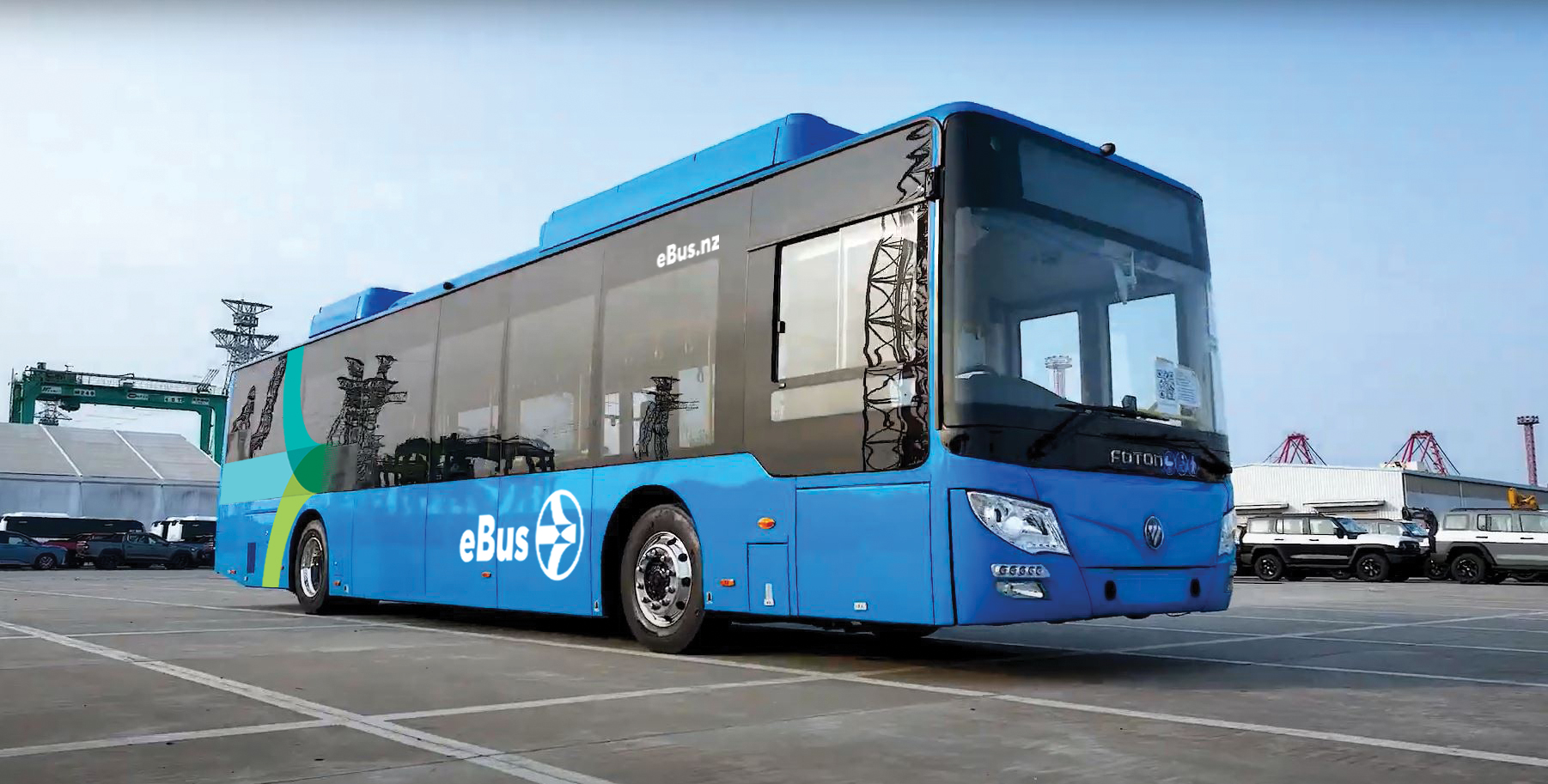eBus batteries safer, greener than normal EVs


An example design of one of the new eBus buses, which make use of safer and more sustainable batteries than what many other EVs use. Photo: Nelson City Council.
The new Nelson Tasman bus service launches on 1 August and its name, eBus, reflects the use of electric vehicles and the environmental benefit that brings.
The service will have 17 electric buses, two low-emission diesel 7-metre buses for the Stoke OnDemand service, and three of the older buses will be kept as back-ups in case one of the other buses breaks down or requires maintenance.
The rest of the older vehicles will replace some of the older school buses run by the Ministry of Education.
However, the batteries in the buses aren’t the same as what you’d get in your typical electric vehicle.
The buses use lithium iron phosphate (LFP) batteries as opposed to the Nickel Magnesium Cobalt (NMC) batteries used in many electric vehicles.
“LFP batteries are more in tune with the needs of our new bus network in almost every way when compared to an NMC,” group manager infrastructure Alec Louverdis says.
“The LFP battery has a longer life cycle, is better value, and - as it doesn’t use nickel, magnesium, or cobalt - is more environmentally sustainable.”
They’re also less likely to catch fire because LFP batteries have a more stable chemical structure than NMC batteries.
The LFP batteries are expected to last for more than 10 years but can still be employed beyond that when they’re no longer able to cope with the demands of the major bus routes.
“The buses could be used on a shorter run or alternatively the old batteries can be reused at the Richmond bus depot to store energy from renewable sources to charge buses or supply power to the depot,” Alec says.
The Richmond depot is where all the buses will be charged while the interchange slated for Millers Acre, for example, is a place to swap buses.
“Giving the batteries a second life goes further to reducing the impact our buses have on the environment,” Alec says.
“We’re really excited to get the new buses on the road so Nelsonians can see just how good their new service will be.”
